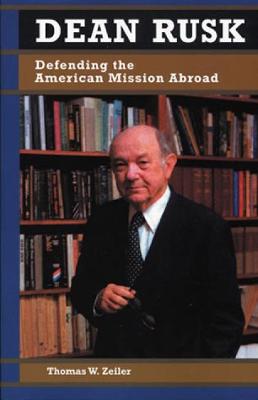Biographies in American Foreign Policy
1 total work
Dean Rusk compared his position as secretary of state in the 1960s to a soldier in a foxhole, defending America against the communist alliance. Author Thomas W. Zeiler writes that the foxhole really represented the universalist ideals Rusk cherished, beliefs that were overrun by the Cold War, by the realism of the two presidents he served, and ultimately by the Vietnam War. With an eye closely on Rusk's liberal internationalism, Dean Rusk uses the secretary of state as a foil to explain to students the accomplishments of United States leadership in the world and the pitfalls the nation encountered due to the tensions between realpolitik and liberal ideology. Through the career of Rusk, the book reflects on the uses and abuses of predominant power in diplomacy, and interprets well-known events and issues in the comparative framework of idealism and realism. In explaining Rusk's policies and decisions, it also analyzes the evolving uses and interpretations of Wilsonianism, the major ideology shaping twentieth-century American diplomacy. Dean Rusk follows the course of the Cold War, the defining international conflict of the last 50 years.
